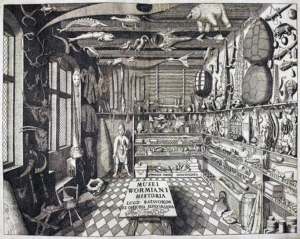The following was originally posted online in 2013 in slightly different form.

- Collecting is about restraint, not the lack of it. If you buy selectively, you’re a collector; if you buy reflexively or compulsively, you’re a hoarder. In other words:
- Don’t amass “stuff.” Collect something that is meaningful to you. Don’t get locked into a habit. True collecting is much more than just acquisitiveness; it’s about knowing all you can about your subject and, even better, finding out something new that other collectors may not know.
- Choose your collecting area carefully. Specialize as much as possible and stick to those parameters. It’s smarter and certainly more cost-effective to limit your spending and then broaden your field than to spend widely and then narrow your focus.
- Be realistic. If you flip burgers at McDonald’s for minimum wage, don’t plan to collect signed Hemingway first editions anytime soon. Better to choose a more contemporary author or artist or musician you really love whose associated memorabilia is within your price range. Which is to say:
- Stay within your budget. Part of the fun of collecting is getting great stuff at great prices. Sure, if you have deep pockets, you can buy whatever you want by just throwing money at it—but I question how rewarding that could possibly be, especially as you’re bound to overpay more often than not.
Some of my favorite pieces are the ones that cost the least. This usually means spreading the word about what I’m looking for, watching a lot of online auctions and dealer websites, exercising patience, and otherwise persevering. It also involves plenty of research. When you finally nab what you’ve been searching for, that’s when you’ll feel the most gratification.
- Quality is more important than quantity. Unless something is unique, one-of-a-kind, or so rare that you never expect to see another, it’s bound to come on the market again—sooner than you think, in better condition, and/or at a better price. Before buying or bidding on something, ask yourself: Do I really need this? If your honest answer is no, pass on it.
- You can’t have everything. Collecting is a journey that never ends. Unless you collect a very limited series of something—rookie cards for the 1969 Mets, for example, or Franklin Mint spoons for the state of Hawaii—you’ll never acquire every worthwhile collectible in your area of interest . . . so don’t try to buy everything. Again, be selective.
- When you lose an item, let it go. You may mistype a last-minute bid and not have enough time to correct it; or sleep through an early morning auction; or mistake the date or time an auction was due to end; or encounter a computer glitch; or discover that an item was withdrawn from an auction because the consignor decided to sell it directly to another bidder . . . All these things have happened to me. Most often I’m simply outbid. It used to ruin my whole day—even my whole week.
Then I learned to take a deep breath and just get over it. If you want to get spiritual about it, just accept that everything happens for a reason. Maybe it means that you’ll get something even better before long: As Alexander Graham Bell said, “When one door closes, another door opens . . .” Or consider it payback for the great stuff you were lucky enough to get in the past. The important thing is not to agonize over a loss and, if possible, to learn something from it.
